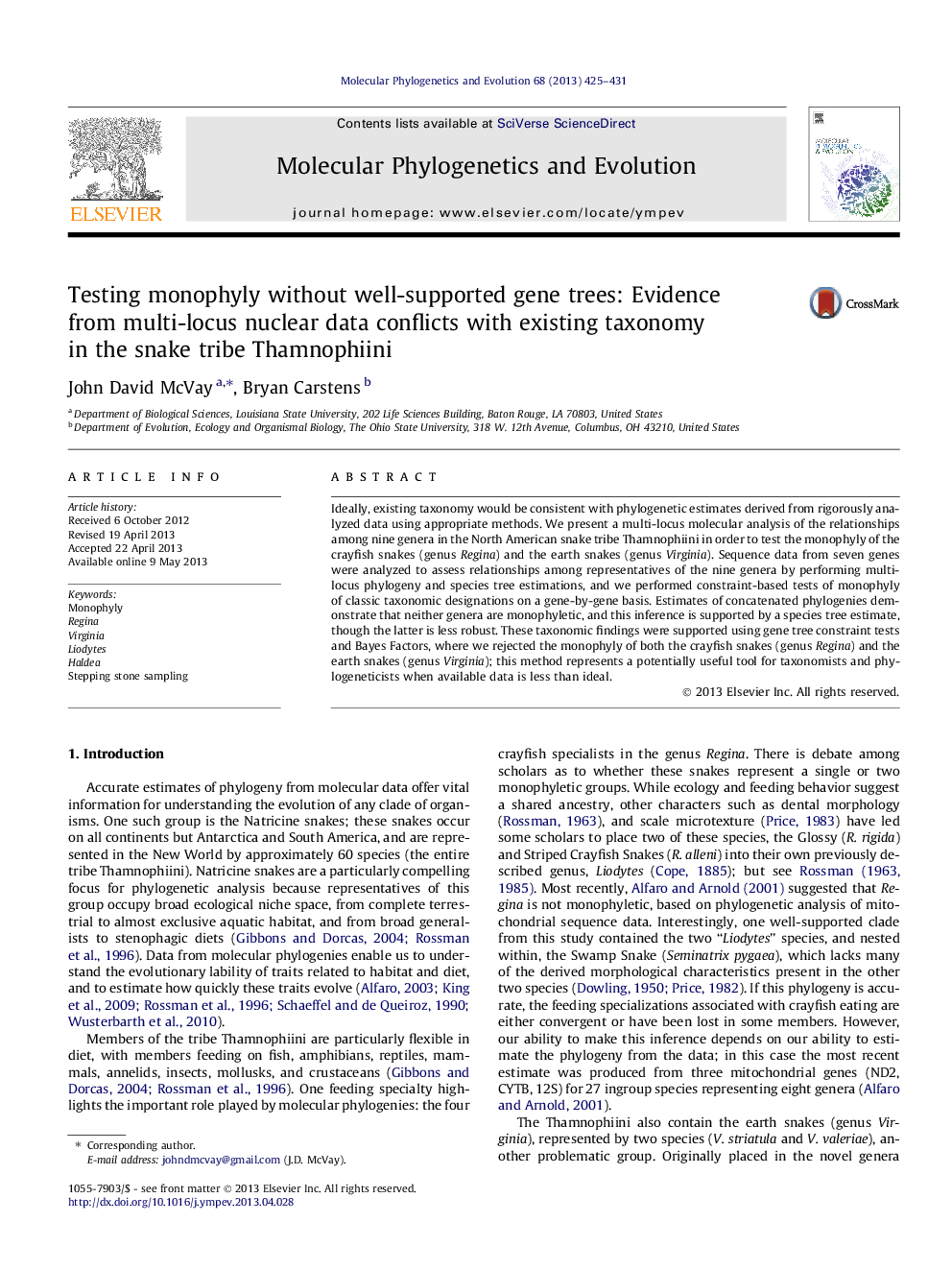| Article ID | Journal | Published Year | Pages | File Type |
|---|---|---|---|---|
| 5919784 | Molecular Phylogenetics and Evolution | 2013 | 7 Pages |
â¢Multiple nuclear genes reject the monophyly of the snake genera Regina and Virginia.â¢Monophyly can be effectively tested even when gene trees are poorly supported.â¢MC1R may bias both species tree and concatenated phylogeny estimates.
Ideally, existing taxonomy would be consistent with phylogenetic estimates derived from rigorously analyzed data using appropriate methods. We present a multi-locus molecular analysis of the relationships among nine genera in the North American snake tribe Thamnophiini in order to test the monophyly of the crayfish snakes (genus Regina) and the earth snakes (genus Virginia). Sequence data from seven genes were analyzed to assess relationships among representatives of the nine genera by performing multi-locus phylogeny and species tree estimations, and we performed constraint-based tests of monophyly of classic taxonomic designations on a gene-by-gene basis. Estimates of concatenated phylogenies demonstrate that neither genera are monophyletic, and this inference is supported by a species tree estimate, though the latter is less robust. These taxonomic findings were supported using gene tree constraint tests and Bayes Factors, where we rejected the monophyly of both the crayfish snakes (genus Regina) and the earth snakes (genus Virginia); this method represents a potentially useful tool for taxonomists and phylogeneticists when available data is less than ideal.
Graphical abstractDownload full-size image
